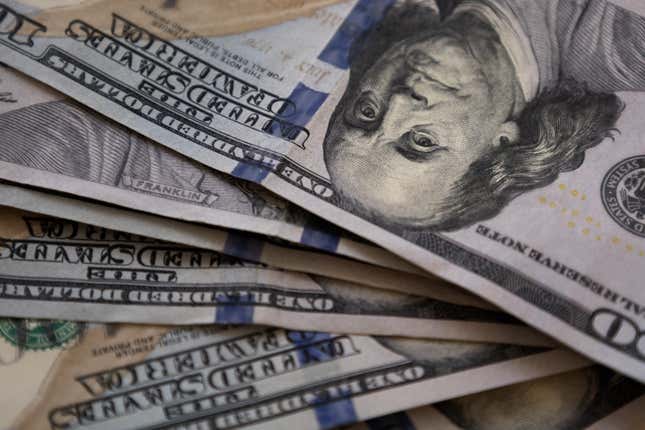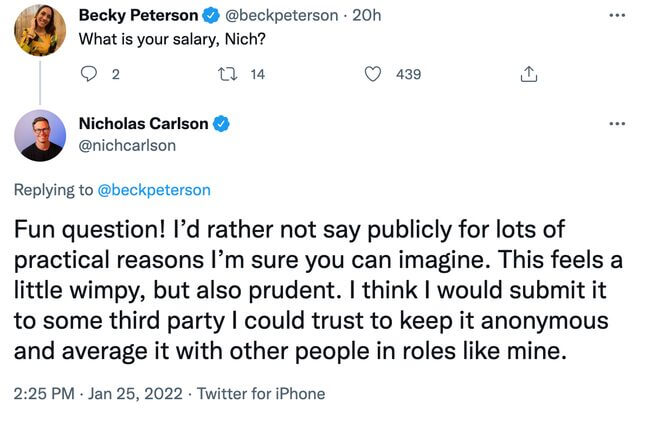Editor-in-Chief Calls for Salary Transparency (Only If It Isn’t His)
Insider's editor-in-chief shared a project from the publication that "demystifies people's salaries" but balked at requests to reveal his own.
EntertainmentEntertainment

It’s relatively easy to avoid being Twitter’s main character of the day, but some people are hellbent on leaning into chaos. This week, one of those people was Insider’s editor-in-chief Nicholas Carlson.
Carlson announced on Twitter on Tuesday that Insider would be “launching a series that demystifies people’s salaries” and implored his 30,000-plus followers to share their own salary histories. In what could not be a more natural response, many people asked Carlson what he makes. Carlson called out one of these inquiries as a “fun question” (is this fun? what the fuck is going on?), and then did absolutely nothing to demystify his own salary.
-

-

-

-

-

-

-

-

-

-

-

-

-

-

-

-

-

-

-

-

-

-

-

-

-

-

-

-

-

-

-

-

-

-

-

-

-

-

-

-









































